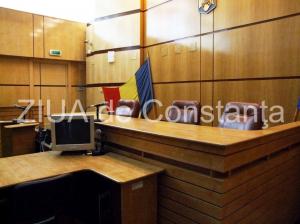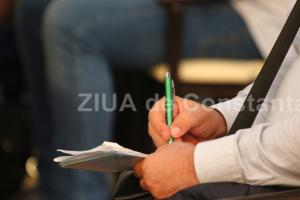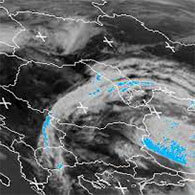Statement by U.S. Secretary of State Hillary Clinton on the ICJ decision on Kosovo
Statement by U.S. Secretary of State Hillary Clinton on the ICJ decision on Kosovo 2618
Marime text
2618
Marime text
Transcript of Thursday's briefing at the Foreign Press Center with U.S. Ambassador to Kosovo Christopher Dell, and the Department's Legal Advisor, Harold Koh. The video of this briefing can be found at the FPC's website at: http://fpc.state.gov/145040.htm.
======================================================
FOREIGN PRESS CENTER BRIEFING WITH LEGAL ADVISER HAROLD HONGJU KOH OF THE DEPARTMENT OF STATE AND U.S. AMBASSADOR TO KOSOVO CHRISTOPHER DELL
THE WASHINGTON FOREIGN PRESS CENTER, WASHINGTON, D.C.
TOPIC: THE INTERNATIONAL COURT OF JUSTICE'S ADVISORY OPINION ON KOSOVO'S DECLARATION OF INDEPENDENCE
THURSDAY, JULY 22, 2010 AT 4:00 P.M. EDT
MODERATOR: Good afternoon and welcome to the Washington Foreign Press Center. This afternoon we are pleased to have the legal advisor of the Department of State Harold Koh, and the U.S. Ambassador to Kosovo Christopher Dell. They will be discussing the implications of the International Court of Justice's advisory opinion on Kosovo's declaration of independence. And I ask that your questions are limited to that topic.
The legal advisor will speak first and then both are open to questions.
MR. KOH: Good afternoon. Today in the Hague, in response to a request for an advisory opinion from the UN General Assembly, the International Court of Justice, principal judicial organ of the United Nations, decisively found that Kosovo's declaration of independence of February 17, 2008, is in accordance with international law.
The court by a vote of 10 to 4 concluded that adoption of Kosovo's declaration of independence did not violate rules of general international law, nor did it violate UN Security Council resolution 1244 or the constitutional framework that had been established to guide interim stabilization of Kosovo.
With respect to each of its legal conclusions, the court accepted the views expressed by the authors of Kosovo's 2008 declaration of independence, as well as the views of the U.S. Government which had appeared in support of Kosovo's legal position.
We never had any doubt that Kosovo is independent. We believe that the court's advisory opinion now dispels the legal doubts raised by Serbia in putting forward the advisory opinion and request. The court's opinion was closely tailored to Kosovo's unique factual situation and thus did not generally opine on rights of self-determination or secession under international law.
As Secretary Clinton indicated earlier today, we call on states that have not yet done so to recognize Kosovo, and we urge Serbia and Kosovo to move beyond these legal questions to work together constructively toward a common European future.
And now, Ambassador Dell and I would be happy to answer your questions.
MODERATOR: Please state your name and media organization. Andrei.
QUESTION: Hi, my name is Andrei Sitov. I'm with TASS, the Russian news agency. Thank you for doing the briefing and thanks to our friends at the FPC for arranging it.
My question is about the first legal principle here. What is the first - the basic legal principle that allows a territory to succeed? What is the legal principle that the U.S. supports in this case?
MR. KOH: Well let me point out that the court's opinion, very specifically, said absolutely nothing on that subject. The only question that it answered was the one that it was asked by the General Assembly which is - is Kosovo's declaration of independence in accordance with international law? And in 40-plus pages the answer to that question was yes. It didn't say anything about the effects of that declaration; it didn't say anything about further recognitions. All it answered was the question - was whether the declaration is in accordance with international law.
QUESTION: Yes, sir, but you are (inaudible) and expert on international law yourself. We have your bios here. So I'm asking you in your official capacity or even in your unofficial professorial capacity - I understand you're on loan from Yale.
MR. KOH: I'm on leave from Yale which means that my job is to answer the questions that involve my own government service. And the answer here is pretty simple. What had happened here is that Kosovo had declared independence - that the fact of that independence has become a political reality. But that there is a question put to the General Assembly and then put from the General Assembly to the general - to the International Court of Justice which attempted to cap the legal doubt on that independence.
The court's opinion today by a vote of 10 to 4 answered those legal objections and now it's returned to the situation that it was in before, which is how to move forward toward a common European future.
QUESTION: Again, you as a lawyer - doesn't a fact create a precedent whether you recognize it or not formally?
MR. KOH: Well, as a lawyer I carefully studied precedents and I don't read court decisions to say more than they say. They didn't say all declarations of independence are in accordance with international laws, but they said that Kosovo's declaration of independence on its particular set of facts is in accordance with international law. They pointed to, among other facts peculiar to Kosovo's situation, the fact that there was a humanitarian crisis; the fact that there was a special UN Security Council resolution to address the problem; the fact that processes were created to create an international civilian and security presence -
AMBASSADOR DELL: As an interim measure.
MR. KOH: As an interim measure. The fact that the political process that was envisioned left the question of final status open and made clear that the possible outcomes included, but did not require independence. So it was the declaration of independence that then changed the political environment.
And again, that background, they said, does this declaration of independence accord with international law? The answer they gave to that very narrow and specific question was yes.
MODERATOR: Next question, Brian.
QUESTION: Brian Beary from Europolitics. What is your message to the five EU member states that are adamant that they are not going to recognize Kosovo? What do you say to them today?
AMBASSADOR DELL: I'll take that one. Again, we don't speak for the European Union, of course. But my understanding is - is that all 27 members of the European Union have agreed with the principle, if you will, that the membership of both Serbia and Kosovo in the European Union is desirable and it is something the European Union will work towards. How the European Union - the 22 recognizing states, the European Union Secretariat, Council, et cetera, deal with the five non-recognizers in that context is an internal matter for the Europeans to address. But the position of the European Union is not to preclude the possibility of Kosovo as well as Serbia one day becoming a member.
So there's a lot of work - forward-looking work to be done here, but that prospect remains very much alive and on the table.
QUESTION: So when you say it's an internal matter, you're not calling on those five countries to recognize Kosovo?
MR. KOH: Well, earlier today, the Secretary of State, in addressing in her statement on the legal opinion, said now the legal opinion has been - the question has been asked and answered. We called upon all states that have not yet done so to recognize Kosovo. So yes, of course, we include the five, but the timing of that and when that happens will be a matter that they'll have to address themselves.
MODERATOR: Next question right here.
QUESTION: Hi, Nadia Chow with the Liberty Times Taiwan. When you said that this case is especially tailored for Kosovo, could you just be specific why you mean that it's tailored for Kosovo? And we remember a few years ago there's another case of, like, East Timor, so in the future, if the declaration of independence is legal or not, is that supposed to be case-by-case, since other countries in the region, like China, Russia, worry about the impact on Taiwan, Tibet, or Uighurs?
MR. KOH: Exactly. I think the import of the opinion is that this will be addressed case-by-case. Let me just go through the different pieces of the opinion which show how narrow the ruling is on this point.
First, they address the question of whether there are general rules of international law that prohibit unilateral declarations of independence, and they say no.
But then they turn to the specific question of whether the Security Council resolution 1244 which governed the Kosovo situation in some way created a barrier to the declaration of independence. And they go through an extremely detailed analysis of this Kosovo-specific resolution to determine there is no bar.
And then third, they find that there's no bar in the constitutional framework that was established to implement the stabilization of Kosovo.
AMBASSADOR DELL: Under 1244.
MR. KOH: Under 1244. So on those facts, they conclude that there is nothing in general or specific international law that renders this declaration of independence illegal. Now, they could go through this analysis in another circumstance, but it would be with different sets of specific international law or rules.
So I think very much it is tailored to this specific situation. If you just look at the pages of the opinion, and we've studied them only quickly, obviously, it is a highly Kosovo-specific analysis on the legal issue.
QUESTION: May I have a follow-up?
MODERATOR: Sure.
QUESTION: Since this case is rare, do you think it has any impact on an international court? Well, in the future, will this be challenged or if some other country will try to seek the same path, do you think they will - this case, it's unique, but will it have a long-term impact?
MR. KOH: Well, when I presented the argument in this case in the Hague in Decision, I pointed out there have been more than a hundred declaration of independence but that they had been in different periods of time and under different factual circumstances. The question that was put to the court was: Is this the one that you might actually call in violation of international law? And we pointed out all of the reasons - and the court, in fact, noted the exact same reasons which I have just now noted - the humanitarian situation, the specific resolution 1244, the political process that was engaged on the interim issue, the leaving open of the status question - as reasons why there was no reason to find this declaration of independence in violation of international law.
So I think that other countries, if they have a desire to take some case to the court on this issue, would obviously have to look to this opinion and see whether there's anything about their case that makes their case stronger than this one. This was not a close outcome; 10-4 in a ICJ ruling is a decisive victory.
MODERATOR: Next question right there.
QUESTION: Good afternoon. My name is Dagmar Benesova. I am from World Business Press from Slovakia. My question is that the independence of Kosovo creates different reactions of different countries, and these reactions differ also among the countries which are usually strong allies in many other issues which has really strong relationship. And it is also the question of the relationship between Slovakia and the United States when the United States affirmed the independence of Kosovo and Slovakia has a different attitude, like for instance different attitude.
So my question is: Aren't you afraid that this contradiction maybe could harm or will influence the relationship between the United States and Slovakia? Thank you.
AMBASSADOR DELL: The United States has friends and allies in many parts of the globe. We disagree with almost all of them on some question or the other. That doesn't mean they're not our friends or our allies.
A little more than a year ago, Vice President Biden visited the Balkans. He visited Belgrade and Pristina in particular. And in Belgrade, he said that on the question of Kosovo, we will have to continue to agree to disagree. That doesn't mean that nonetheless we don't want a strong, positive relationship with you. Obviously, this matter of Kosovo is more prominent in our relationship with Serbia than I imagine it is with Slovakia, so I don't see it - if it's not an impediment to us working to develop good relations between the United States and Serbia, I doubt that it's going to be any kind of impediment for the further evolution of our relationship with Slovakia.
MODERATOR: For the next question, we'll go to New York.
QUESTION: Hi, my name is Robert Poredos from Slovene Press Agency. I have a question, maybe twofold question. How do you envision a way forward now between - I mean, (inaudible) between the new countries, Kosovo and Serbia, what should happen?
And then a second thing. Do you see any other way that Serbia could try to deny Kosovo's independence, like this way with a court opinion? Thank you.
AMBASSADOR DELL: I would remind you or refer you back to what the Secretary of State said in her statement today. It's now up to the two parties to engage in a - engage constructively in a way to build peace and stability in the Balkans. They're neighbors. Neighboring countries have many issues to discuss. The United States discusses issues all the time with Canada or with Mexico. There are practical questions concerning - some of them are legacy questions, missing persons from the period of conflict ten years ago. There are law enforcement questions, transportation, energy management, a whole raft of different things. Our hope is that with this legal question now behind us, the two parties can find a way to begin to discuss some of these very practical issues which both of them need to address to facilitate their own progress forward towards membership in the European Union.
Again, I think this is a process that the two parties are going to define for themselves a way forward and find a way that they can work together to resolve the differences that have arisen just from the mere fact that they live in the same geographic space.
MR. KOH: I would only add that not every issue in international life is a legal issue and not every issue - legal issue needs to be taken up in a judicial forum. And I think the court wisely recognized that today in saying that legal objections may be raised, but that doesn't mean that they are valid. And so they put this one to one side and we think that that was the correct outcome.
MODERATOR: Next question here, and then here.
QUESTION: Yeah. Hi, I'm Milan Misic, Politika, Belgrade. I have a question for the Ambassador Dell. The day before yesterday, Prime Minister Hashim Thaci speaking to the U.S. Institute for Peace and answering a question about the possibility for the autonomy for the Serbs in the northern region in Kosovo, said that it's also out of question and cited the Kosovo constitution is a result of the international consensus.
But yesterday, one of the senior State Department officials, he hinted that Prime Minister Thaci could be open for such an idea, citing the EU policy of autonomy for various regions and et cetera. What are the respective positions of Pristina and Belgrade in that regard?
AMBASSADOR DELL: I didn't listen to Prime Minister Thaci's speech the other day so I'm not sure that I would characterize what he had to say the way you have. What I have heard him say publicly in Kosovo on many occasions - publicly at least once and many occasions in private - is that within the context of a European Union that consists of many regions and is recognized as such, he is prepared to look creatively at ways in which the special nature of the north of Kosovo can be accommodated within the boundaries of the unitary state of Kosovo, but given - recognizing that in the Europe of the 21st century there is room for special status - not status, that's the wrong word - special nature of regions within single countries. To be less cryptic, we're referring here to regional arrangements such as exist in Belgium, South Tyrol, many parts of Europe.
I don't think I'm in a position to speak to what the respective positions of Pristina and Belgrade are. That's really a question more appropriate to address to representatives of those countries.
QUESTION: Hi, my name is Keida Kostreci and I'm with the Albanian Service of Voice of America. My question has to do about - with the dynamic of the relationship between Serbia and Kosovo in looking to the future. What would be an appeal to the peoples and leaders of the two countries to move forward not just as a political matter but as a matter of future of their children and grandchildren so that the region now leaves behind it the bitter past of the conflict and the aftermath of this conflict? Thank you.
AMBASSADOR DELL: That's a very good question and I think really gets to the heart of the matter. As Mr. Koh said, the legal question has been asked, it's been answered, it's behind us. So now the real question is how do the two countries find a way to move forward that will do exactly what you described - create a better future for themselves, their children, their posterity. Again, that's a matter for the two countries to decide.
We hope and support the concept that this could take place in the broad framework of the European perspective of both countries, that they recognize that a European future for both of them is good for themselves as well as their neighboring country and for the broader region. I'm heartened that the first reaction - the first public statement of Prime Minister Thaci focused exactly on this, and he spoke about the need to create - I'm trying to find the language - I have his statement in front of me - this is a - "Today's decision was a victory for the whole region and for our shared European perspective." I haven't seen it, but I understand that President Tadic may have said something similarly constructive today in Belgrade.
I think this is a positive sign that the leaders of both countries are, in fact, thinking about the future and the way forward and building a better future.
MODERATOR: Next question.
QUESTION: Hello, I'm from El Mundo, Spain. And two of the main arguments of the court to support this decision are that the declarations of independence are political acts, not legal acts, so they cannot contravene - they cannot be illegal because they are political. And the second one is that the integrity of the borders of these states, that principle of the United Nations Charter, it's only restricted to relations within a state in the sense that that state cannot invade another state, but it doesn't apply to secessions from inside. My question is do you agree with these two points?
MR. KOH: Well I'm not sure you've stated the point correctly. The first one, they did point to a number of declarations of independence that had problems with the legality because of the acts to which they were connected to illegal uses of force or gross violations. But I think what they suggested is that in the argument in December, the lawyer for the Finnish Government put it well: He said the declaration of independence is not a parking ticket; every declaration of independence has its own character; every declaration has to win its own political legitimacy. And some of them may end up violating international law because of the way in which they are created. Others, in particular the one that has just been decided and passed upon here, clearly is now in accordance with international law.
On the second question, the court made clear that issues about secession were beyond the scope of its decision, and so they didn't pass on those questions.
MODERATOR: Next question right here.
MR. KOH: You can look in paragraph 83 of the court's opinion that makes it clear that secession issues are outside the scope of the opinion.
QUESTION: Hi, I'm Brian Knowlton with the International Herald Tribune. If I understand, the court has declared that the declaration of independence is legal but did not say that the state of Kosovo itself is legal, which is a distinction that seems like it might be lost on the ground. I'm wondering if you could elaborate a bit on that, please.
MR. KOH: Well, the court didn't write the question. The question was drafted in the General Assembly and the Serbian Government was part of the process of suggesting the question. Some of the discussion and the opinion is about the narrowness of the question. But the question as presented, and presumably the people who asked the question, were trying to present it in a favorable way or in a way that could be favorably answered is - is this declaration, the Kosovo declaration of independence, in accordance with international law. And what the court's opinion does is it answers that question which is the only question put to it - yes.
Now, I suppose you could come back and address some of the outgrowth of that question. But if the core question - is it in accordance with international law has been answered yes, it doesn't seem like some of the other questions that you might ask following it are likely to be answered in a way that's inconsistent with that outcome.
QUESTION: Did the court - you said it did mention other declarations of independence. Did it by any chance mention the secession of the confederate states, and have any comment on that?
MR. KOH: That wasn't before the court. And - I mean -
AMBASSADOR DELL: That was said a long time ago.
MR. KOH: What it did say which was interesting was - remember, it was asked to address not secession, it was asked to address and particularly legal phenomenon, declarations of independence. And it says under general international law principles, there is not general rule - or there was no general rule - barring declarations of independence, or authorizing them for that matter, that these were political acts.
It then says in recent years - although there has been a wave of independence movements - we see the emergence of no rule of international law barring declarations of independence. So, as a general matter, they saw no reason to call the legality of this declaration of independence into question. But that was just the beginning of their analysis. They then turned to the specifics of 1244 - the resolution designed to deal with the stabilization of Kosovo and the constitutional frameworks that were established -
went through those in great detail, and relying on the particular facts, and concluded that none of those pieces of international law barred the declaration of independence that emerged.
So at the end of the day, they found that they declaration was in accordance with international law.
MODERATOR: Brian.
QUESTION: And does this ruling have any impact on the ground in terms of KFOR and EULEX? The missions that are there particularly in trying to get another United Nations resolution, as I understand it, that they - the existing forces there are under a resolution that doesn't recognize Kosovo's independence. And do you think there's going to be any change in the United Nations talks?
MR. KOH: I'll ask Chris to address the policy issue. But on the legal question, in answering the question that the declaration of independence is lawful and acknowledging what has been a matter of political realities since February 2008, I don't think that they passed on questions about other features of the environment there and whether they can coexist or not with those realities.
AMBASSADOR DELL: Yeah, I have to admit I'm a little confused at what you're trying to get at. I think KFOR, EULEX - well, EULEX is present at the invitation of the Government of Kosovo, so it does not fall into the framework of 1244. KFOR and the UNMIK intermittent administration were established under 1244. And I defer to Harold on the legal analysis, but I don't think that anything that I heard in today's opinion suggests to me that this has set up some kind of conflict between the Government of Kosovo and these prior existing institutions established under 1244. They can coexist in the same space perfectly well.
MR. KOH: Yeah. And I think, in fact, what is clear is that if 1244 authorizes these other institutions and 1244 does not bar the declaration of independence, then the declaration of independence and these other institutions can lawfully coexist in Kosovo region as they are doing.
MODERATOR: Any other questions?
QUESTION: I wanted a clarification about the court. I am - and I'm sorry, I should know this - I don't. ICJ is different from ICC, right?
MR. KOH: Yes, that's right.
QUESTION: Because you do not recognize ICC but you do recognize ICJ, right?
MR. KOH: Well, to be specific, we are a party to the statute in the International Court of Justice and we are not a party to the Rome Statute. Although, I just came back from Kampala where we -
QUESTION: And I know.
MR. KOH: -- attended as an observer. Yes.
QUESTION: What's the difference in terms of - why do you participate in -
MR. KOH: How much time do you have? (Laughter.) The International Court of Justice is the principal judicial organ of the United Nations, it's in existence since 1946. Its jurisdiction is between states and it has a both a contentious jurisdiction and an advisory jurisdiction, which was exercised in this case.
The International Criminal Court was established in 1998. Its jurisdiction is criminal. Its cases are specified by the Rome Statute which was adopted at that time. And there are four crimes that have been prosecuted: war crimes, crimes against humanity, and genocide. And the issue in Kampala was would that be extended to include other crimes through an amendment process.
QUESTION: No, I mean why you participate in one and not the other. Yeah, I meant my question was why the U.S. participates in one and not the other.
MR. KOH: I could ask you why you participate in one organization and not another organization. Each one you make an independent assessment and then you make an independent process to join and participate, and every country in the world makes an independent decision with regard to independent - international institutions.
MODERATOR: If there are no further questions, I thank our speakers for coming to the FPC today and thank you all for attending.
Urmareste-ne pe Grupul de Whatsapp
 Fondul Documentar Dobrogea de ieri și de azi
Fondul Documentar Dobrogea de ieri și de azi
































